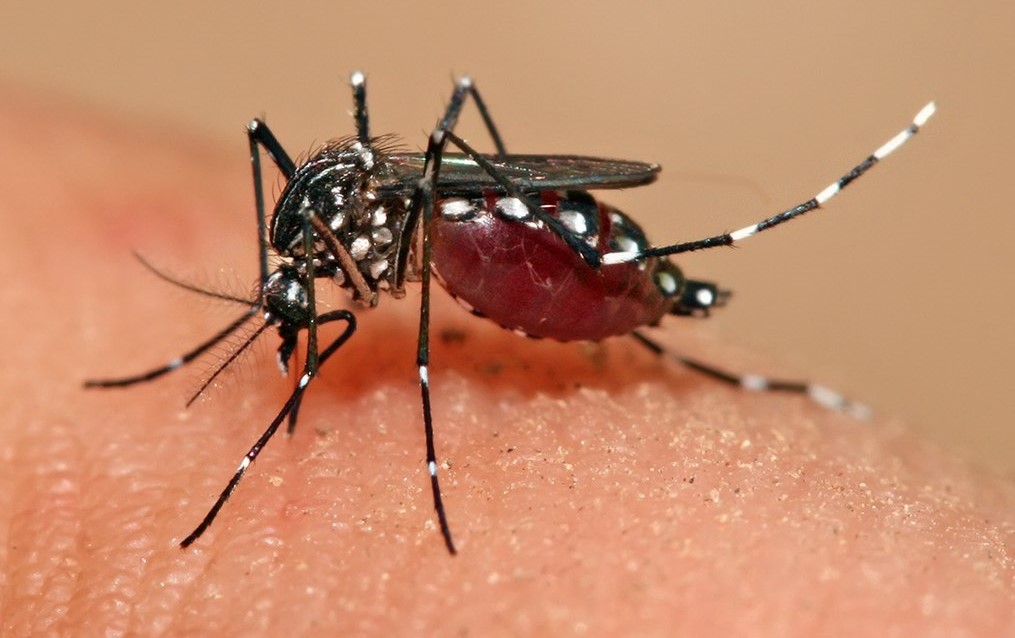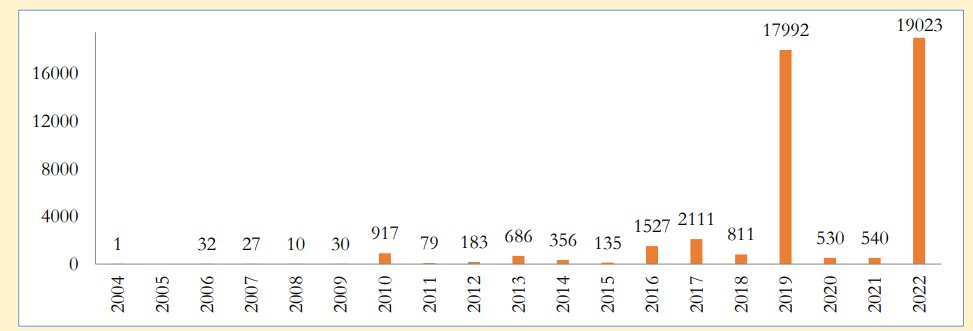Life & Health

With rising number of dengue cases in the country, the Epidemiology and Disease Control Division (EDCD) has recommended the Ministry of Health and Population to declare dengue epidemic. The division has also requested the ministry to make a rapid action plan to curb the infections.
What is an epidemic?
Centers for Disease Control and Prevention (CDC) US describes epidemic as an unexpected increase in the number of disease cases in a specific geographical area. "Epidemics can refer to a disease or other specific health-related behaviour (e.g., smoking) with rates that are clearly above the expected occurrence in a community or region."
“Whenever there are a larger number of cases an epidemic is declared to focus attention of the state for the control and prevention of the disease,” said Dr Sher Bahadur Pun, chief of Clinical Research Unit at the Sukraraj Tropical and Infectious Disease Hospital.
Nepal has reported 19,023 cases of dengue since January in the country as of September 20. In 2019, the country recorded 17,992 dengue cases. Six deaths were reported then.

Epidemic refers to an increase, often sudden, in the number of cases of a disease above what is normally expected in that population in that area, as per CDC US.
“When there is an exponential rise in the number of cases it should be understood that the disease has already become an epidemic,” said Dr Guna Nidhi Sharma, senior health administrator at the Ministry of Health and Population.
The number of dengue cases has surged rapidly in the past few weeks. There were only 4,104 dengue cases on September 2.
Dengue is a vector-borne disease carried by female Aedes aegypti mosquitoes and, to a lesser extent, Aedes albopictus. This mosquito also transmits chikungunya – an infection spread to people by the bite of an infected mosquito, yellow fever and Zika infection.
Ishan Gautam, associate professor of entomology at the Tribhuvan University said infected female Aedes Aegypti mosquitoes hop from one place to another to another as they lay eggs.
Gautam said: “The behaviour of the Aedes Aegypti mosquito is such that it does not lay eggs in a single area and at a single time. It likes to lay its eggs in different areas at different times. For example, it may lay five eggs in one area and lay more eggs in other areas. The garbage in the city has given perfect breeding spots for the mosquitoes to lay their eggs. There are discarded plastic cups, bottles, bottle caps where the mosquito lays its eggs.”
Also the mosquitoes go biting multiple individuals, thus increasing the number of infections.”
Need of emergency health plan
The government declares public health emergency whenever the numbers of infectious diseases rise.
“If any disaster occurs in more than one Local Level, the concerned Province, and if the public health disaster occurs in more than one Province, the Government of Nepal may declare state of public health emergency,” states the Public Health Service Act 2018.
"During the emergency circumstances, the federal, provincial and local level shall develop emergency health plan and enforce it.
Dr Pun said: “As the number of infection has already increased, the government must declare a public health emergency and should act immediately to curb the infection. It is already late."
The declaration would be helpful in taking measures against the spread of the virus, the doctors hope.
“It is necessary to come up with emergency health plan so that we can lessen the number of infections,” added Dr Pun.
The Health Ministry officials say that the declaration of epidemics or public health emergency will be done with the recommendations from the health experts.
“It is not only about declaring an epidemic but it is also about how actively we work for the prevention of the disease,” said Dr Samir Kumar Adhikari, assistant spokesperson at the ministry.
The doctors suggest that communities play an active role in decreasing the number of cases.
Dr Baburam Marasini, public health expert said: “When a public health emergency is declared the government can mobilise its resources both from the public and private sector. All the concerned health bodies and communities can be mobilised to curb the infection spread.”
Wear light coloured clothes
To prevent dengue infection the doctors advise keeping the environment clean, destroying the breeding habitat of mosquitoes, avoiding being outside during dawn and dusk and wearing full sleeved clothes and wearing light coloured clothes.
Dr Gautam said: “Mosquitoes are attracted to heat. Dark colours hold more heat than light colours. Light-coloured clothing reflects heat off. The mosquitoes are less likely to notice those wearing a light coloured garment than those in black or brown or any dark colour.”
Late arrival in hospital
Though a large number of people have been infected by dengue many appear to stay indoors avoiding consulting the doctors.
Dr Pun said: “Patients tend to visit hospitals only in the second week of infection saying there is no sure-shot medicine for the infection anyway. They come to the hospital only when there is severity such as vomiting, stomach ache.
According to the World Health Organization, there is no specific treatment for dengue/severe dengue, but early detection and access to proper medical care lowers fatality rates below 1 per cent.
Delay in consulting doctors or visiting hospitals increases mortality chances, Dr Pun said. A total of 24 deaths have been reported from across the country till September 20.

_11zon1681280198.jpg)




